
| Home |
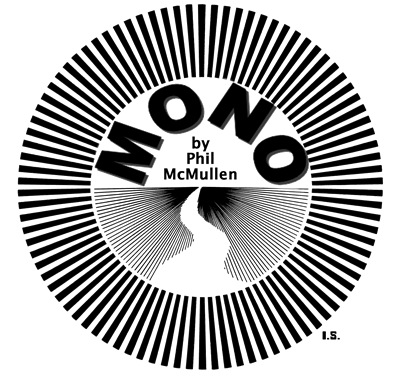
An interview with ‘Taka’ Goto of MONO
Instrumental Japanese quartet MONO have been one of our favourite bands hereabouts for so long now that they’re in danger of having a permanent memorial erected. Imagine a massive black marble edifice, divided by clear glass at intervals, until unexpectedly towards the top of the structure it explodes into a shower of fragments, with flames spitting upwards towards a starry sky.
Their sound befits just such a monolith. Textured melodies and tapestries of sound are piled on top of one another, some as dense and impenetrable as the darkest of ocean depths and the next thinner than the highest and lightest of mountain airs, until inevitably the whole thing erupts sending molten rock (RAWK!!) cascading down around your ears. Although often lumped into the “Post-rock” oeuvre because of their adherence to this loud/quiet formula dynamic, Mono are in fact far more complex than that label suggests, holding metaphoric hands across the sea with such inventive outfits as Kinski, Stars of the Lid, Explosions in the Sky and Do Make Say Think far more than the oft-referenced Slint, Tortoise and Mogwai.
Terrascope Online caught up with ‘Taka’ Goto of MONO just before their gig at the Cooler in Bristol during November 2006.
T-O: Taka, there’s several bands and artists you’ve been associated with who we’re already really familiar with at the Terrascope – Loren Connors for instance.
TG: Ah, so! I am a huge fan of his.
Yeah, he’s great. He appeared at our second ‘Terrastock’ festival in San Francisco. How did you get to know him?
I just have so much respect for him. I tried to contact him – I wrote him a long letter which I sent through a friend of mine, and he replied! A good letter, for me. Totally amazing.
MONO’s most recent release is a track on the ‘Thankful’ compilation released on the Temporary Residence label, run by Jeremy deVine. Was that song recorded especially for that compilation?
No, we recorded it at the same time as the ‘You Are There’ album. Basically, we wrote the song for John Peel. He asked us for a song for the radio session. We decided we needed to write a song, and after that suddenly he was dead. It was so sad story, so sad. In the end we gave the song to Jeremy for the sample CD.
A good place to use it, definitely, and as you say a very sad story. Have you recorded any other songs for compilation albums?
No, no, I think we just released the one split album with Pelican from Chicago, and also the ‘New York Soundtracks’ collaboration album.
That’s a really cool album – what’s the story behind that one? It’s your songs interpreted by other people, right?
Yes, yes. Actually ‘New York Soundtracks’ was an album influenced by the aftermath of September 11th. It was very moving. A friend of ours, Aki Onda – he is so very good – he is living in New York and has many friends there. We wanted to try and capture the creative energy of the New York sound. That is why it is titled New York Soundtracks, it was because of September 11th.
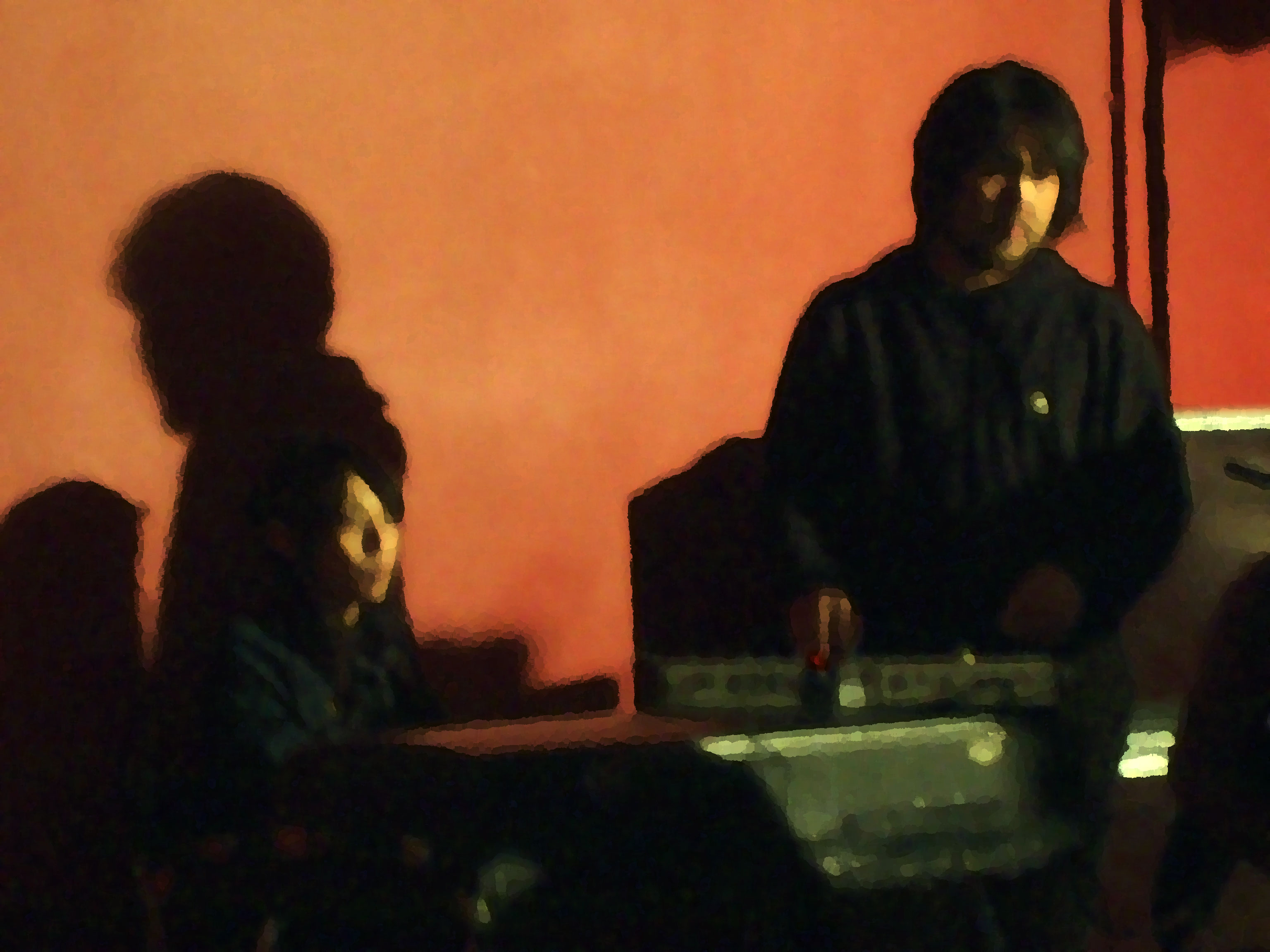
Released in 2003, ‘New York Soundtracks’ came about, as Taka mentions, after electronic improviser and producer Aki Onda met MONO during the autumn of 2002 at Tonic in New York. The idea was born of creating a remix album together by musicians who lived and worked in New York – including of course Loren Connors, who Taka had long admired. The album features some of the most prominent figures on the New York avant-garde /experimental music scene: Loren Connors, Calla, Marina Rosenfeld, DJ Olive, Aki Onda, Raz Mesinai and Jackie-O Motherfucker.
And that album was recorded after ‘One Stop More And You Die’ and before ‘Walking Cloud’, right?
Yeah, yeah.
Back to the beginning of the band: MONO formed in the year 2000 I think?
Yes. 1999, 2000.
And it was the same line-up, the same 4 people? [Takaakira Goto: guitars, Tamaki: bass, Yasunori Takada: drums and Yoda: guitars]
Yes, always.
How long was it before you made your first album?
Actually I started writing the songs in 1999 in January, and then I was looking for a year for band members. I wrote demo songs by myself.
And how did the band form, were the other people friends or did you hold auditions – interviews, in other words?
Actually I tried everything. After all
that a friend of mine, Yoda, who is guitarist of MONO, we had had a
friendship for oh, twelve or more years and I asked him: do you know any
good guitarists? And he replied, “hey Taka – I am a guitarist!”
[laughs] I was so sorry – I didn’t even know!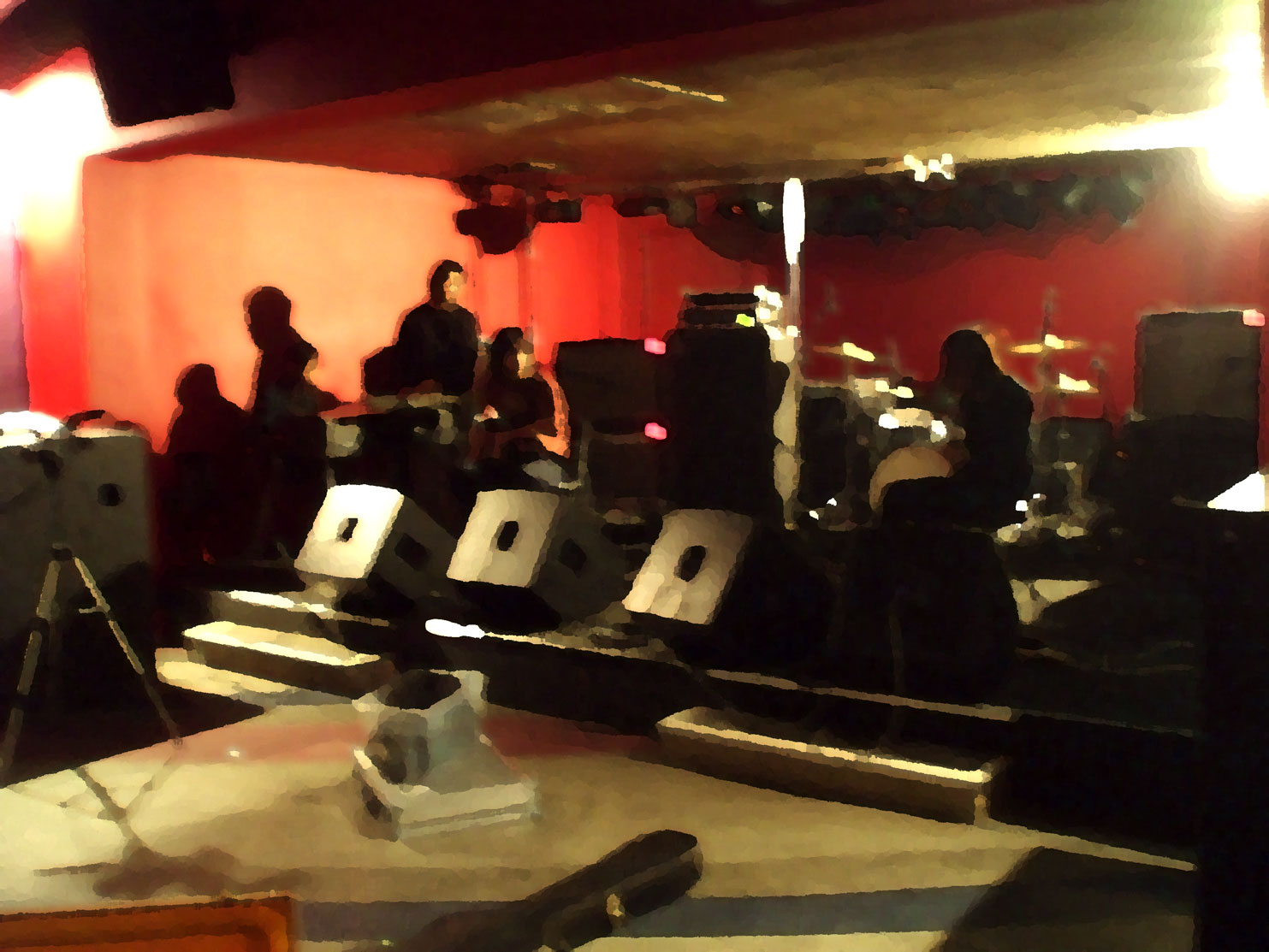
And of course, as soon as you heard him play you knew he was the right person!
Yes, yes.
Did the first album ‘Under The Pipal Tree’ sound exactly as you wanted it to?
Yes, but it is a very, very young album, you know? I think at the time I wanted to play all the endless endings of a U2 song, you know? [laughs]. I wanted to combine the noise of My Bloody Valentine and Sonic Youth. I don’t know... it’s such a young [immature] album. So strange to listen to now.
MONO’s debut album ‘Under The Pipal Tree’ was released in the USA in 2001 on John Zorn's Tzadik-label as part of the New Japan-series that also included albums by Melt Banana, Merzbow and Ruins. It’s a relatively conventional-sounding guitar-oriented noisy post-rock album at heart, although I’d personally argue that it’s stood the test of time far better than that description suggests and is an album that not just the completists should pay attention to. For whatever it’s worth, Pipal trees have heart-shaped leaves and are considered holy by both Hindus and Buddhists. Allegedly the Buddha attained enlightenment under a pipal tree. For Hindus the banyan tree is the embodiment of Lamski, the goddess of fortune and consort of Lord Vishnu, whereas the pipal is seen as the embodiment of Lord Narayan (Vishnu). So now you know.
It’s always interesting to explore where band’s sound originated. So, the ‘One Step More And You Die’ album was recorded more than a year later? It sounds a very different album.
Yes, it is a lot different. Much more dark!
2002’s ‘One Step More and You Die’ finds MONO getting to grips with the intricacies of the tension and release style of song-writing. The “darkness” that Taka refers to comes not through the weight of sound but through density: there’s a moment during the stand-out number on here, ‘Com(?)’, for example where the track is at its peak and the mix seems completely saturated when suddenly as if from nowhere an additional screaming sheet of feedback flashes between your ears and you suddenly experience a whole new level of noise, noise that you actually feel. By way of a contrast, much of the album is quieter, more pastoral if you will.
Had you been touring a lot at that time?
No, we played a few places in New York and in Sweden. I wasn’t happy – we did not tour enough. But, you know... nobody knows about MONO, and when we played in the USA the crowd is always talking a lot and drinking beers and making a lot of noise.
[frowns] I really, really hate it when that happens.
Yeah, me too. So we just stopped playing [laughs]
Your next album ‘Walking Cloud and Deep Red Sky, Flag Fluttered and the Sun Shined’ was recorded with Steve Albini – how did that come about?
We looked for a good, good sound engineer, one who can use a tape machine. We don’t like using Pro-Tools or sitting at a computer. We don’t need that, and Steve Albini is definitely the best real sound engineer. Also, we always play live in the studios: only take one, take two etc.
2003’s ‘Walking Cloud and Deep Red Sky, Flag Fluttered and the Sun Shined’ comprises eight new songs recorded, as noted above, by Steve Albini. The album finds MONO at their most darkly cinematic; in retrospect it’s a nuclear winter of an album compared to the post-war optimism and grandeur of ‘You Are There’ that followed it two years later, altogether more orchestral-sounding and lush than their earlier recordings, with a slow-melting ambience coupled with a thunderous drive.
What is the story behind the folding paper cranes that are such a feature of that album? [origami is featured on the cover, and copies included a square of red paper with which to practise a little paper folding yourself. The album also features a song allegedly based on a Japanese story ‘Sadako and the Thousand Paper Cranes’, about a young girl attempting to rid herself of leukemia by appeasing the gods via a thousand folded paper cranes]
Ah, yes. When we wrote the song for ‘Walking Cloud, Deep Red Sky’ – in fact, before then to be honest – I had been thinking, “Why am I Japanese? What is it that makes me Japanese?” A Japanese man is so different – if I had been born in the USA, what would I have been like? But, I was born in Japan, and I longed to know what it is that defines us. And suddenly I thought: we were the first country that the atomic bomb fell on. We should be expressing more hope. The paper cranes story is a very very typical piece of Japanese culture.
You’re primarily known now as a live band: you tend to release an album a year and then tour for several months. Is that where your inspiration for songs comes from, mainly on the road?
Yes, although it is difficult for me to express it. Our family and our friends are our primary inspiration. We try hard to express the human state – joy and sorrow, energy and culture.
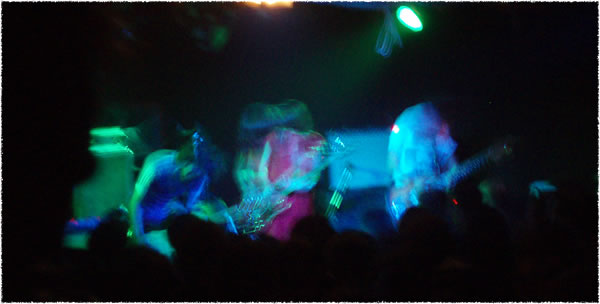
Also, because you are touring a lot, you are coming into contact with many other bands as well.
Yes, it’s funny you know, but I used to want to meet all my favourite bands, but now they are our friends. Especially bands like Bardo Pond, Explosions in the Sky and Pelican. Also we can stay at their houses during the tour and hang out! That’s so good. So good!
Do you plan to do any more musical collaborations with other bands, like the one with Pelican?
No, the Pelican split was just so special – it was a one-off. I don’t know... maybe if pelican or someone like that wanted to do a split with MONO, then maybe.
The album ‘You Are There’ came out in 2006, that was again recorded by Steve Albini, right?
Yes, yes. He is so good.
MONO’s fourth studio album, ‘You Are There’, was released through Temporary Residence Records, on April 10th 2006 (I only remember this because I celebrated my birthday with a copy!). In many ways it’s a natural progression from ‘Walking Cloud’, which is to be applauded, although I have to confess the first two albums remain personal favourites. There’s a breathless charm and bombastic innocence about them which makes me weep with joy, the sound rolling towards you like the mother of all storms and then breaking overhead, unstoppable and majestic, frightening and yet exhilarating. Again like ‘Walking Cloud’, ‘You Are There’ was recorded by Steve Albini, who once again serves to emphasise the band's more delicate complexities, with a scraping of cello and more than a tinkle of emotive piano, most notably on the closing 13-minute finale ‘Moonlight’ which opens with a piano refrain backed with strings and marimba, in turn giving way almost reluctantly to gentle layers of guitars before, inevitably, the song dies in a shower of lead as it crashes through the exit doors with all guns blazing. As Mats Gustafsson noted in his review for Terrascope Online, “Every shift in dynamics and instrumentation seems to be there in order to get the story told and not just for the sake of blending intricate atmospherics with full-on cathartic rock outs. Walls of aggression and white noise rarely sound this beautiful and affecting.”
The latest album is ‘Palmless Prayer/Mass Murder Refrain’, also released earlier this year (2006) – what’s the story behind that one?
The World’s End Girlfriend are a very, very, very amazing artist from Japan. I always so respect him and his work. Very fortunately, when we played together in Japan we created a friendship with each other and began talking, saying we should be working together someday. That’s the story behind the album really.
‘Palmless Prayer/Mass Murder Refrain’ is every bit as haunting as the title suggests. Five songs (75 minutes) long and available in both CD and double LP format, the first 500 vinyl copies were pressed on coloured vinyl (one clear, one black with gold tinted swirls). On this album the landscape previously hinted at, glimpsed through the misted eye of a lens, is MONO’s universe, with fellow Tokyo native and electronics composer Katsuihiko Maeda, aka World’s End Girlfriend, acting as their guide. The music is divided into five numbered movements, each of them having all the get up and go of a tectonic plate and yet, for all their glacial immobility, Mono draw out moments of incredible beauty within the shifting soundscapes, and somehow make the gentlest of crescendos seem like the tumultous explosions of sound that we’ve come to know and love of them.
Even more recently, MONO have released the pounding ten-minute long 'Memorie Del Futuro’ on a limited-edition 10” on the Vinyl Films label, run by film-maker Cameron Crowe (yes, the same chap that brought you ‘Vanilla Sky’). Arguably one of their finest recordings yet, as the distorted guitars and soaring violins fade you are left with a feeling of despairing melancholy. Grab it while you can!
What is coming up – is another album planned? More tours, presumably?
Yes, more tours. Also we just recorded four new songs with Steve Albini in Chicago, just before this tour. I think they will be released next spring.
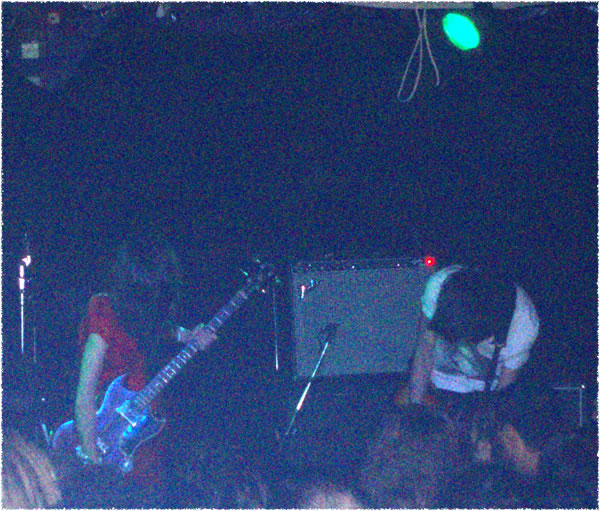 Great!
On Temporary Residence Records again?
Great!
On Temporary Residence Records again?
Yes, yes – Jeremy is so good.
MONO have played dates over here in Britain (Leeds, Belfast, Glasgow and Sheffield) and Ireland (Dublin) on this tour so far – how’s the tour going?
It is very good, so far.
And you are playing in London tomorrow? I’m going to that show too with a friend of mine, so I’ll see you again there.
Oh! So we shall see you again tomorrow! [sadly the subsequent London show, at Camden Underworld, although still one of the best gigs of the year so far to my mind, was marred slightly by sound problems and over-enthusiastic security]
Well, thanks ever so much for your time – have a good show and see you again soon!
Thankyou! We would very much like to play your next festival!
I’ll certainly see what I can do, Taka. Thanks go to both Taka and Tamaki for their time and goodwill, and to Jeremy deVine (Temporary Residence), Reiko Kudo (Mono’s manager) and Matski (tour manager) for helping to set it all up.
Words and pictures: Phil McMullen, © Terrascope Online, December 2006.
Human Highway records (Japan): www.humanhighwayrecords.com
Temporary Residence records (USA): www.temporaryresidence.com